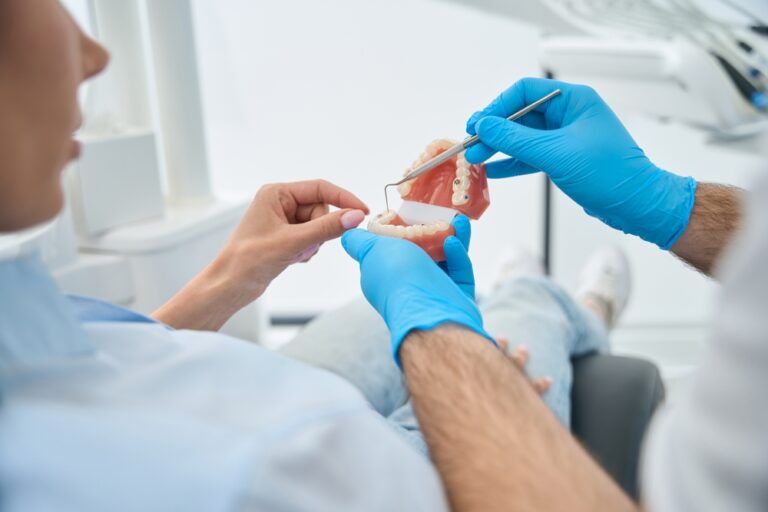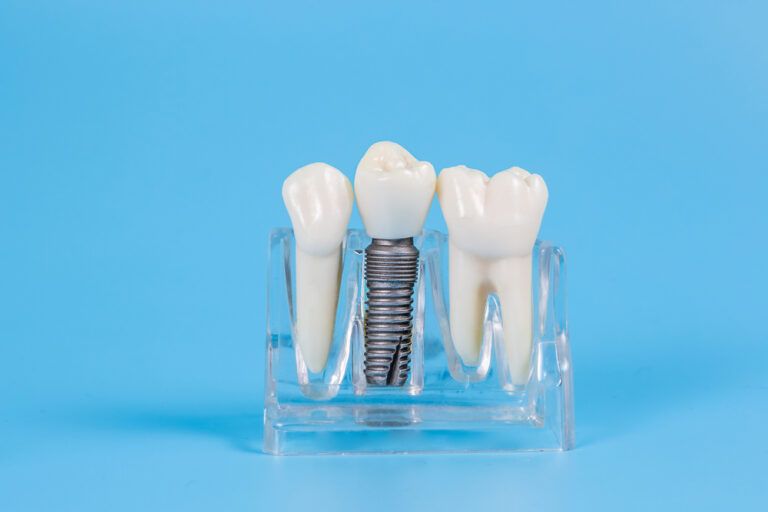Oral health is often viewed as separate from overall health, but growing research shows a significant connection between your mouth and your heart. The condition of your teeth and gums can impact your cardiovascular system in unexpected ways. In this blog, we will explore the link between oral health and heart disease, highlighting why maintaining good oral hygiene is crucial for your overall well-being.
Understanding the Oral-Systemic Connection
The relationship between oral health and heart disease is rooted in the concept of the oral-systemic connection. This connection refers to how the health of your mouth affects the health of your entire body. Poor oral hygiene can lead to the development of periodontal disease, which has been linked to various systemic conditions, including heart disease.
1. Periodontal Disease and Inflammation
Periodontal disease, or gum disease, is a chronic inflammatory condition caused by bacterial infections in the gums. When left untreated, it can lead to the destruction of the tissues and bone that support your teeth. The inflammation associated with periodontal disease doesn’t just stay in your mouth; it can spread to other parts of your body, contributing to the development of heart disease.
2. Bacteria in the Bloodstream
When you have gum disease, the bacteria in your mouth can enter your bloodstream, especially during brushing, flossing, or dental procedures. Once in the bloodstream, these bacteria can attach to the walls of your arteries, leading to a condition known as atherosclerosis, where the arteries harden and narrow. This process increases your risk of heart attack and stroke.
3. Shared Risk Factors
Oral health and heart disease also share common risk factors, such as smoking, poor diet, and diabetes. Addressing these risk factors can help improve both your oral and cardiovascular health, reducing your overall risk of disease.
Signs Your Oral Health May Be Affecting Your Heart
Recognizing the signs that your oral health may be impacting your heart is crucial for early intervention. Here are some key indicators that you should be aware of:
Persistent Gum Disease
If you have ongoing issues with gum disease, such as red, swollen, or bleeding gums, it could be a sign that your heart health is also at risk. Chronic inflammation in the gums can lead to inflammation in other parts of the body, including the cardiovascular system.
Bad Breath
Persistent bad breath (halitosis) is often a sign of gum disease or an underlying oral health issue. While bad breath alone doesn’t indicate heart disease, it can be a warning sign that your oral health needs attention.
Loose Teeth
If your teeth feel loose or you notice changes in your bite, it could be due to advanced gum disease, which has been linked to heart disease. The bacteria and inflammation that cause tooth loss can also contribute to cardiovascular issues.
Preventing Heart Disease Through Oral Health
Taking care of your oral health is a proactive step in protecting your heart. By maintaining good oral hygiene and addressing any dental issues promptly, you can reduce your risk of heart disease.
1. Practice Good Oral Hygiene
Brushing and flossing daily are the foundation of good oral health. Use fluoride toothpaste and a soft-bristled toothbrush to clean your teeth and gums effectively. Flossing removes food particles and plaque from between your teeth, where your toothbrush can’t reach.
2. Regular Dental Check-Ups
Regular visits to Seaport Family Dental are essential for maintaining oral health and catching any issues early. Dr. Steve Deng can identify signs of gum disease, provide professional cleanings, and offer personalized advice to keep your mouth healthy.
3. Quit Smoking
Smoking is a major risk factor for both gum disease and heart disease. If you smoke, quitting is one of the best things you can do for your oral and overall health. There are many resources available to help you stop smoking, including counseling, medication, and support groups.
4. Manage Health Conditions
Conditions like diabetes can increase your risk of both gum disease and heart disease. Managing these conditions with the help of your healthcare provider can help protect your oral and cardiovascular health.
The Role of Seaport Family Dental in Your Health
At Seaport Family Dental, we understand the importance of oral health in maintaining your overall well-being. Dr. Steve Deng and his team are committed to providing comprehensive dental care that supports not just your teeth and gums, but your entire body.
We offer a range of preventive and restorative services designed to keep your mouth healthy and reduce your risk of systemic conditions like heart disease. From regular cleanings to advanced periodontal treatments, we have the tools and expertise to protect your health.
Taking Control of Your Oral and Heart Health
By understanding the connection between oral health and heart disease, you can take proactive steps to protect both. Regular dental care, good oral hygiene practices, and a healthy lifestyle are essential components of your overall health strategy. At Seaport Family Dental in Redwood City, CA, we are here to support you every step of the way, ensuring that your mouth and heart stay healthy for years to come.
Sources:
- Pihlstrom, B. L., Michalowicz, B. S., & Johnson, N. W. (2005). Periodontal diseases. The Lancet.
- Dietrich, T., Sharma, P., Walter, C., Weston, P., & Beck, J. (2013). The epidemiological evidence behind the association between periodontitis and incident atherosclerotic cardiovascular disease. Journal of Clinical Periodontology.
- Lockhart, P. B., Bolger, A. F., Papapanou, P. N., Osinbowale, O., Trevisan, M., Levison, M. E., … & Taubert, K. A. (2012). Periodontal disease and atherosclerotic vascular disease: does the evidence support an independent association? Circulation









